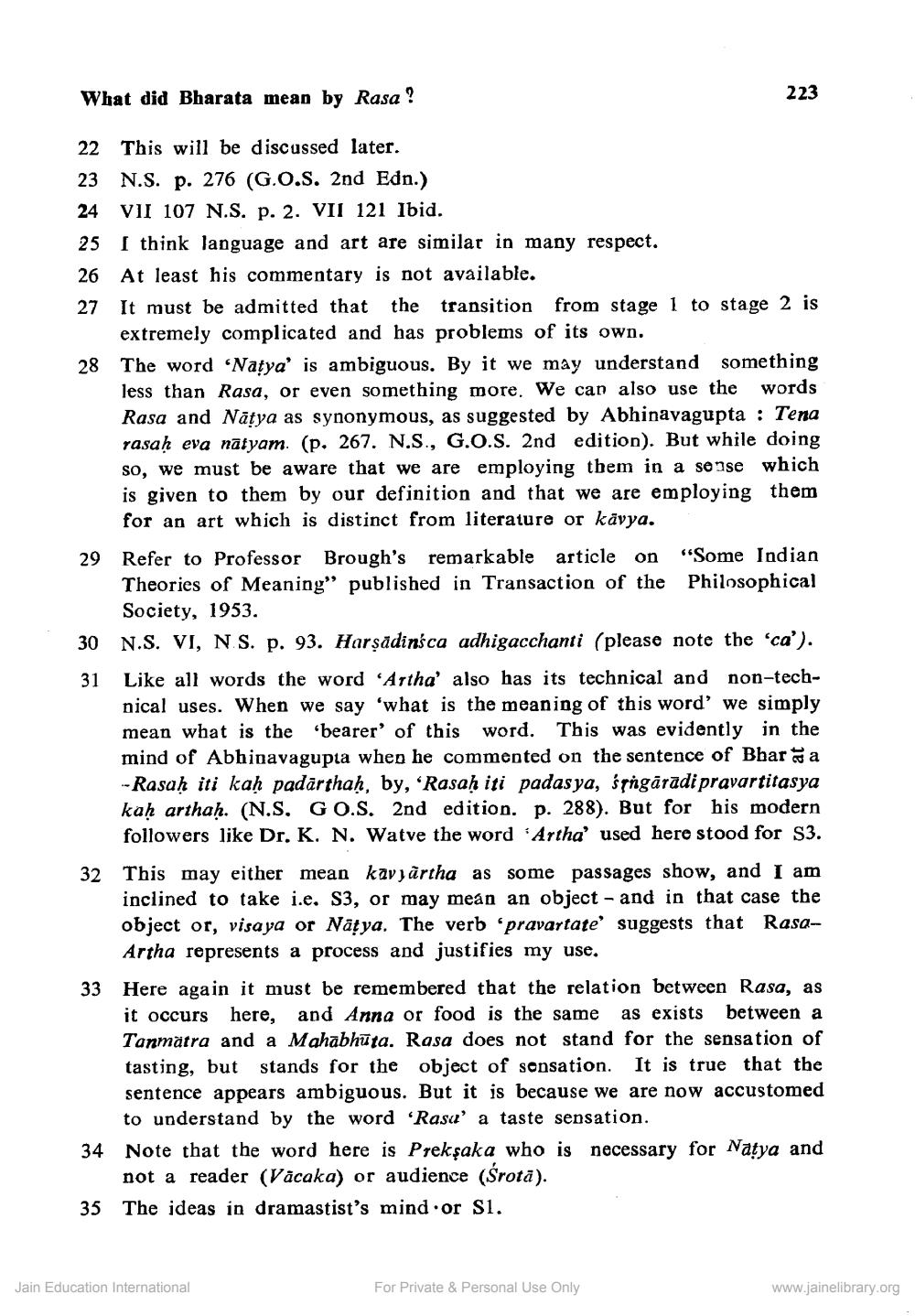________________
What did Bharata mean by Rasa ?
223
22 This will be discussed later. 23 N.S. p. 276 (G.O.S. 2nd Edn.) 24 VII 107 N.S. p. 2. VII 121 Ibid. 25 I think language and art are similar in many respect. 26 At least his commentary is not available. 27 It must be admitted that the transition from stage 1 to stage 2 is
extremely complicated and has problems of its own. 28 The word “Natya' is ambiguous. By it we may understand something
less than Rasa, or even something more. We can also use the words Rasa and Natya as synonymous, as suggested by Abhinayagupta : Tena rasaḥ eva nātyam. (p. 267. N.S., G.O.S. 2nd edition). But while doing so, we must be aware that we are employing them in a sense which is given to them by our definition and that we are employing them
for an art which is distinct from literature or kávya. 29 Refer to Professor Brough's remarkable article on "Some Indian
Theories of Meaning" published in Transaction of the Philosophical
Society, 1953. 30 N.S. VI, N. S. p. 93. Harşādinšca adhigacchanti (please note the 'ca'). 31 Like all words the word 'Artha' also has its technical and non-tech
nical uses. When we say 'what is the meaning of this word' we simply mean what is the bearer' of this word. This was evidently in the mind of Abhinavagupla when he commented on the sentence of Bhara - Rasaḥ iti kaḥ padārthaḥ, by, 'Rasaḥ iti padasya, śžngārādi pravartitasya kaḥ arthaḥ. (N.S, GO.S. 2nd edition. p. 288). But for his modern
followers like Dr. K. N. Watve the word 'Artha' used here stood for S3. 32 This may either mean kavyàrtha as some passages show, and I am
inclined to take i.e. S3, or may mean an object - and in that case the object or, visaya or Națya. The verb 'pravartate suggests that Rasa
Artha represents a process and justifies my use. 33 Here again it must be remembered that the relation between Rasa, as
it occurs here, and Anna or food is the same as exists between a Tanmätra and a Mahabhūta. Rasa does not stand for the sensation of tasting, but stands for the object of sonsation. It is true that the sentence appears ambiguous. But it is because we are now accustomed
to understand by the word 'Rasa' a taste sensation. 34 Note that the word here is Prekşaka who is necessary for Natya and
not a reader (Vacaka) or audience (Srota). 35 The ideas in dramastist's mind or Si.
Jain Education International
For Private & Personal Use Only
www.jainelibrary.org




